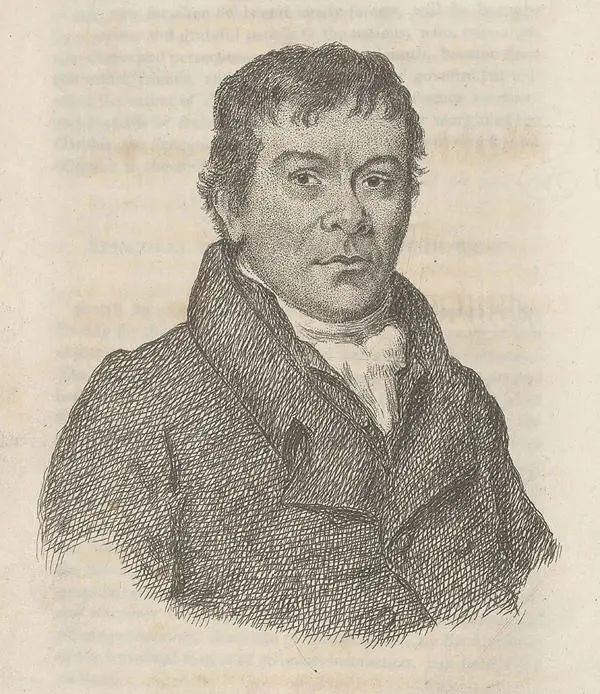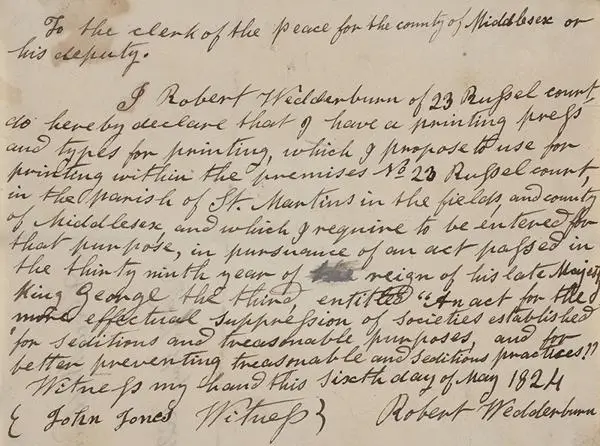Unforgotten Lives - resistance
By the 1780s London became a centre of Black resistance to enslavement and colonialism and in particular an important centre for Black and abolitionist publications. Challenges to racial injustice took many forms, ranging from personal acts to more organised political movements, and involved a variety of individuals and organisations. Two prominent activists, Ottobah Cugoano (c1757-c1791) and Olaudah Equiano (c1745-1797), were founding members of the Sons of Africa and campaigned widely for the cause of abolition through lecture tours, publications, petitions to parliament and court cases.

The period also saw emerging grass roots political mobilisation. Political protests from the 1770s onwards called for political reform, the extension of the vote and improvements to lives of working people. Robert Wedderburn (c1762-c1835) was one of the more radical Black activists. A Unitarian preacher who linked movements for working class rights with demands for an end to slavery, Wedderburn called for simultaneous revolutions in Jamaica and England. He was criminalised and imprisoned on numerous occasions for his views.

Wedderburn wrote extensively to promote his political ideas, publishing Truth Self Supported in 1790 and the periodical Axe Laid to the Root in 1817. On 6 May 1824 he obtained a licence for a printing press at 23 Russell Court, St Martins in the Fields so that he could print his autobiography The Horrors of Slavery. Such a licence was necessary under The Unlawful Societies Act of 1799 which had been introduced to restrict the activities of radical political organisations and to regulate the printing of material deemed to be seditious.
Wedderburn knew too well the dangers of publishing material which could be considered seditious. In the subtitle to The Horrors of Slavery he described himself as “Late a prisoner in His Majesty’s Gaol at Dorchester, for Conscience-Sake” which references his conviction for blasphemy and sedition in 1820.